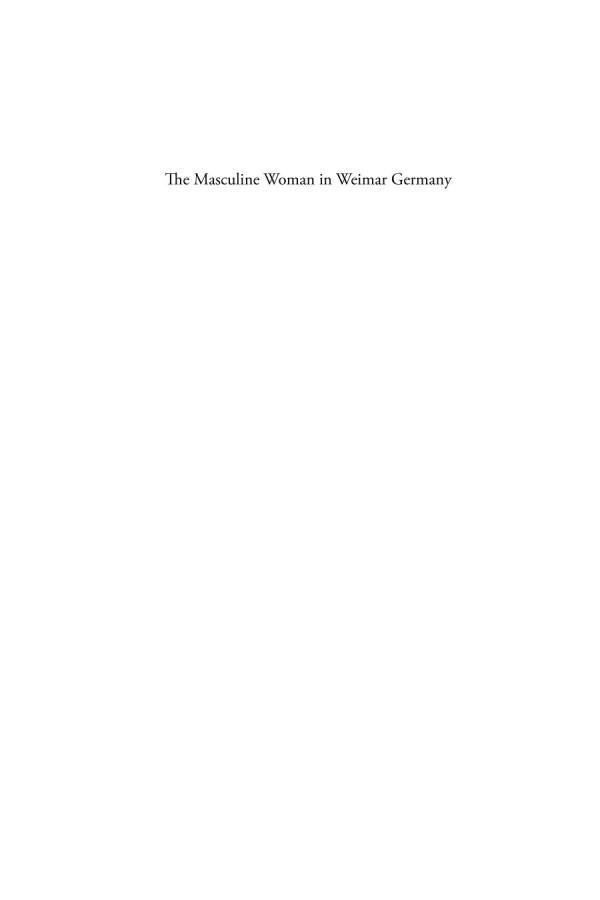

Most ebook files are in PDF format, so you can easily read them using various software such as Foxit Reader or directly on the Google Chrome browser.
Some ebook files are released by publishers in other formats such as .awz, .mobi, .epub, .fb2, etc. You may need to install specific software to read these formats on mobile/PC, such as Calibre.
Please read the tutorial at this link: https://ebookbell.com/faq
We offer FREE conversion to the popular formats you request; however, this may take some time. Therefore, right after payment, please email us, and we will try to provide the service as quickly as possible.
For some exceptional file formats or broken links (if any), please refrain from opening any disputes. Instead, email us first, and we will try to assist within a maximum of 6 hours.
EbookBell Team

4.8
44 reviewsThroughout the Weimar period the so-called “masculinization of woman” was much more than merely an outsider or subcultural phenomenon; it was central to representations of the changing female ideal, and fed into wider debates concerning the health and fertility of the German “race” following the rupture of war. Drawing on recent developments within the history of sexuality, this book sheds new light on representations and discussions of the masculine woman within the Weimar print media from 1918–1933. It traces the connotations and controversies surrounding this figure from her rise to media prominence in the early 1920s until the beginning of the Nazi period, considering questions of race, class, sexuality, and geography. By focusing on styles, bodies and identities that did not conform to societal norms of binary gender or heterosexuality, this book contributes to our understanding of gendered lives and experiences at this pivotal juncture in German history.